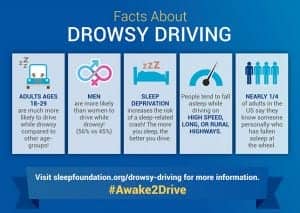The National Sleep Foundation’s (NSF) recent fielding of the Sleep Health Index (SHI) reports that 3% of Americans, representing more than 7 million drivers, reported falling asleep behind the wheel within the past two weeks.Results of the SHI also indicate that people only felt well-rested about four days per week.
“Three days out of the week the average American is not well-rested, which has implications for productivity, well-being, mood, health, and of course, driving. This suggests that the occurrence of drowsy driving is likely underreported,” says NSF research fellow, Kristen Knutson, PhD, in a release.
Other results from the SHI found that only 8% of respondents reported having avoided driving in the past two weeks because of feeling tired. Additionally, only 2% of respondents indicated that they avoided taking a ride with a driver who they felt was too tired to drive safely in that same time period.
These numbers highlight the importance of drowsy driving legislation, public education, and awareness programs, states the NSF. To reduce the 6,400 annual deaths attributed to drowsy driving, NSF is declaring November 6-13, 2016 to be Drowsy Driving Prevention Week (DDPW). This annual campaign, which coincides with the end of daylight saving time, provides public education about the risks of driving while drowsy and ways to improve safety. Additional resources can be accessed via NSF’s DDPW webpage.





